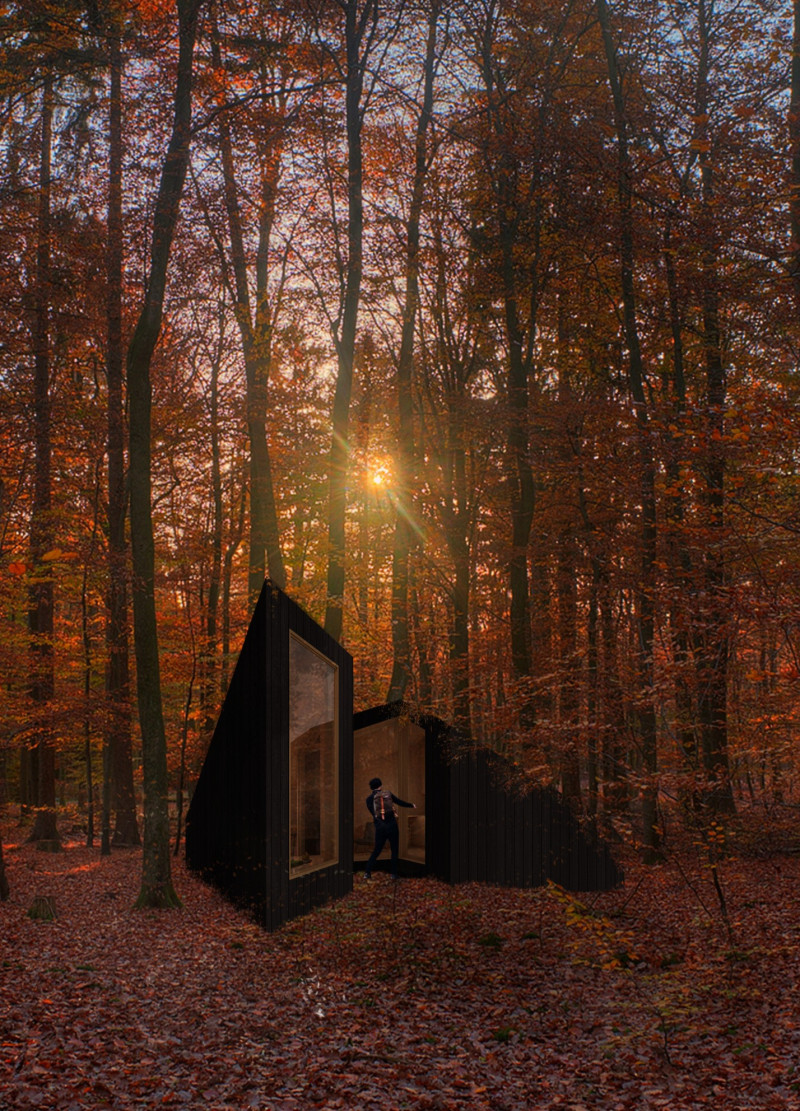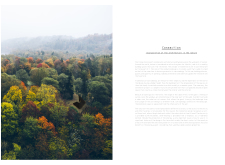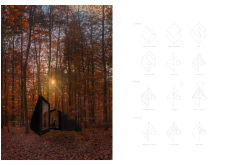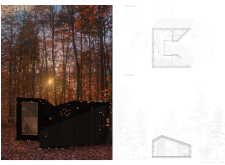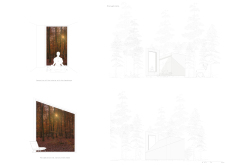5 key facts about this project
The Connection project is a contemporary design that focuses on blending human living with the natural world. Located in a setting rich with biodiversity, the goal is to create a space where occupants can forge a strong connection with their environment. The design emphasizes simplicity and practicality, featuring an open layout that encourages interaction between the interior and the outdoors.
Design Concept
The architectural design reflects traditional Latvian influences, particularly through its pitched roof structure. This roof rises higher than the main body of the building, not only enhancing the visual appeal but also supporting functional aspects. The interior spaces are organized around a central core, which fosters social interaction while offering varied experiences throughout the living area.
Interior and Exterior Interaction
Windows are strategically positioned to provide safety and to allow ample natural light into the space. The design includes cut corners that offer wide views of the landscape, integrating the outdoors into daily life. An elevated meditation space adds a tranquil retreat, allowing individuals to engage more deeply with their natural surroundings.
Sustainability Measures
Self-sufficiency is a key aspect of the design. Pitched roofs are crafted to collect rainwater, which is filtered for household use, reducing dependence on outside water sources. Microturbines generate electricity, while a traditional fireplace provides heating. These features illustrate an integrated approach to energy management and conservation.
Materials and Energy Efficiency
Wood serves as the primary material for the structure. This choice is made for its natural insulation qualities and environmental benefits. The design minimizes energy use by protecting sensitive areas from harsh weather, creating a comfortable living environment. The selection of materials and the thoughtful design ensure the building blends with its natural context.
The overall design approach emphasizes practicality and environmental awareness. The project creates a living space that encourages a meaningful relationship with the surrounding landscape, while also prioritizing sustainability and efficiency in its construction.


